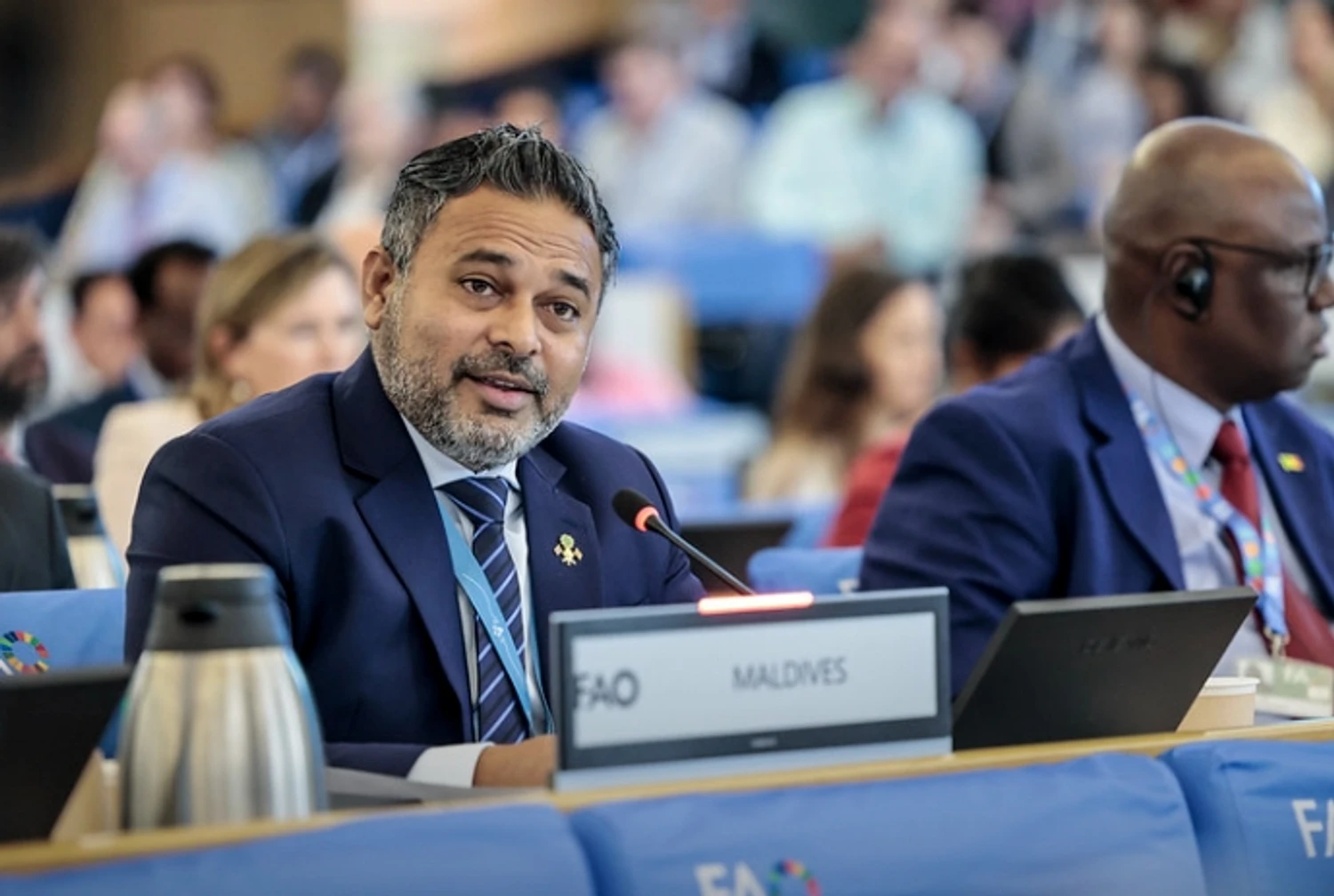
August 08, 2024
Minister's Speech at 36th Session of the Food and Agriculture Organization ( FAO)'s Committee on Fisheries ( COFI )
Date and time: 8th July 2014
Venue/Format: Rome, Italy
Theme: 36th Session of the Food and Agriculture Organization (FAO)’s Committee on Fisheries (COFI)
Distinguished Delegates, Ladies and Gentlemen, It is with profound gratitude that I stand before you today. Representing the Maldives at the 36th Session of the FAO Committee on Fisheries is not just a professional duty but a personal journey rooted in the waters of my homeland. I come from a long line of fishermen. My earliest memories are the sight of our small fishing boat and the stories of the sea shared by my father and grandfather. These were not just stories of bountiful catches or turbulent storms but narratives of resilience, stewardship, and a deep respect for the ocean. For generations, my family, like many others in the Maldives, has thrived on our waters' abundant resources, using pole, line, and handline. We have celebrated its gifts, respected its power, and understood its fragility. The baton of this legacy has been passed from my forefathers to me, and it is a baton I must pass on to future generations. This is more than a duty; it is a profound responsibility to ensure that the lifeblood of our nation remains vibrant and sustainable
The fisheries sector is one of the central pillars of our economy. About 11% of the country's labour force is employed in the fisheries sector, contributing almost 6% of the country's annual GDP. We are also one of the highest fish-consuming communities in the world. We eat tuna for breakfast, lunch, and dinner, which adds up to more than 150 kg per capita per year. Fish and fish products make up more than 90% of the total exports. Recognising this, we have made several sacrifices to maintain the health of our ocean. We have witnessed firsthand the transformative power of sustainable fishing practices and community-driven conservation efforts in the Maldives. Our pole-and-line fishing method passed down through the generations, is a testament to the harmony that can exist between human livelihoods and the health of our oceans. It is a model of sustainability that we are proud to share with the world. But we know that we cannot do it alone. The ocean connects us all, and its future depends on our ability to work together, share knowledge, and support one another. As we gather here today, I am reminded of the proverb, "If you want to go fast, go alone. If you want to go far, go together." The challenges we face require us to go far, and we can only do so by coming together and pooling our resources, expertise, and commitment. In this spirit of unity, I would like to point towards the FAO's Code of Conduct for Responsible Fisheries and the Sustainable Development Goals, particularly Goal 14, which calls on us to conserve and sustainably use the oceans, seas, and marine resources. I want to encourage all leaders to take bold actions, to make difficult decisions, and to be guided by the principles of sustainability, equity, and justice. Because we have to keep reminding ourselves that we do not inherit the ocean from our ancestors; we borrow it from our children. We are making significant strides to improve our contribution. We aim to make our fishery greener by investing in renewable energy.
Under President Dr Muizzu's vision, we aim to use at least 35% of our fisheries industry's energy from renewable sources within the next four years. We need your assistance in our journey to fulfil this ambition. We also recognise the challenges faced by small island developing states like ours. We only have the ocean to thrive. We do not have the power or the ability to compete in the globalised world. We have to import everything except fish. Our freight costs are higher, our labour costs are higher, and the ingredients used in production are significantly higher. Natural and global events and conflicts impact our trade. On top of it, we would need to pay considerably higher import tariffs. Our fragility leaves us behind in the globalised world. We must collectively remove trade barriers, particularly for fragile and vulnerable countries, such as Small Island Developing States like the Maldives. Given the conditions imposed on us, we are forced to sell raw materials to the global market for them to process.
Under the guidance of President Dr. Muizzu, we want to change this status quo. Here in this room, I see leaders and visionaries who share a common goal. We are here because we care. And we are here because we want to see victories—victories that may not always be complete but those that advance the cause and drive change, even by mere degrees. I hope this forum brings us the opportunity to build on this spirit and contribute to ensuring that the ocean remains a source of life, sustenance, and prosperity for all.
Thank you.